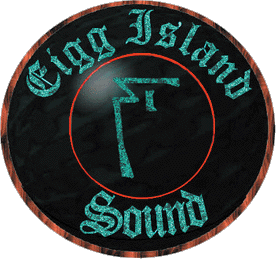
About Reviews
Music Services
Graphics Services
CD Mastering
Hosting Services
Artists
Current Shows
Recent Reviews
E-zine & Press
EIS In the News
Articles for the
Indie Artists
part 4
part 5
part 6
(This
article was originally published at Suite
101.com. It appears with their permission as per the
contributing writer agreement)
|
Reviews Believe it or not, reviews are easy to get. They may not be in Rolling Stone magazine but even the local press is a good way to start to build interest in your band. You can request reviews for your new CD and/or a gig. The trick to reviews is finding the right person to listen to your music. Sending out 200 CDs to various newspapers, magazines and e-zines is not going to help you get good reviews. You need to do research on both online and off-line publications to target those that may do a review. Requesting Reviews A good bet is to target those newspapers, magazines, and e-zines that review the type of music you play. For publications that cover a broader spectrum of music, try to find the reviewer who has offered good reviews of bands with sounds similar to yours. The next step is to contact that reviewer via e-mail, telephone, letter or personal contact. Ask if they would be willing to review your new CD, tape or local show and what materials they need for a review. Keep in mind that a CD that has been out for a number of years may not be the reviewer’s idea of cutting edge. Also, don’t ignore local or small publications particularly if you have gigs in the area. A good review in a local paper or magazine published around the time of your show can really boost ticket sales. Other publications not to be ignored are college newspapers and publications in an area where you are performing. Sending Your Press Kit If a reviewer agrees to listen to your music, send them a Press Kit including a cover letter reminding them of your previous contact with them and thanking them for their time. Always send your Press Kit addressed to a specific reviewer who has agreed to hear your music. A reviewer may listen to your whole CD but you cannot assume that they will. In your cover letter you might include the track numbers of the songs that you think they would like best. Having done your research on this reviewer, you know what type of music appeals to him/her. Good Reviews Keep track of your good reviews. You can use them for publicity in your newsletter and your Press Kit. If a reviewer has given a positive review of your music you might want to contact him or her to thank them and ask if you can add their name to your mailing list. Not all reviewers will agree to this so don’t be surprised if they say ‘no’. Always keep the name and address of a reviewer in a press contact list. Over time, bands often build a positive relationship with various members of the press. Your press contact list will also become invaluable as you learn which reviewers are willing to attend shows, listen to CDs, enjoy your type of music and ultimately write reviews. Other information you should retain on reviewers is information about the publication for which they write such as its circulation and market. Bad Reviews As a musician you will inevitably get bad reviews. It is part of the music game just like rejection letters and you have to expect them. They are shattering and often your gut reaction will be to contact or confront the writer. This is the last thing you should do. Put the review away until you are over the immediate angry reaction then re-read it. See if the reviewer has a specific complaint – the sound quality, production, etc. If the reviewer has identified something that you know is a weakness, then you and your band should work on correcting it. If the reviewer just doesn’t like your music remember that he or she is just expressing an opinion. As hard as it seems, you need to shrug off a bad review. Just add it to your list of people you will prove wrong when you succeed as a musician. |
Questions or comments? please feel free to contact the writer at: wbeck@eigg.com